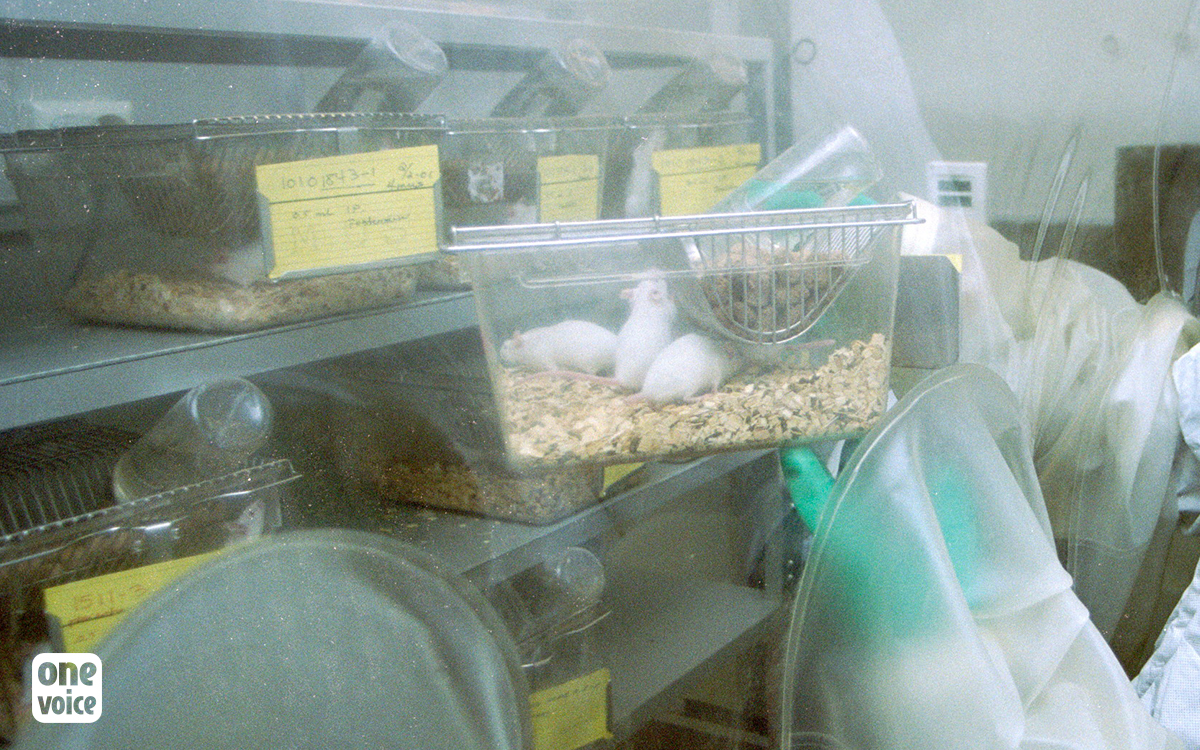

2018 : les tristes chiffres de l’expérimentation en France sont parus
Nous les attendions sans trop d’espoir. Les chiffres de l’expérimentation animale en France en 2018 ont été publiés. Ce sont près de 2 millions d’animaux qui ont encore été utilisés.
En février, nous vous révélions comment les chiffres de l’expérimentation animale étaient manipulés après la publication des statistiques européennes.
C’est maintenant les chiffres français qui ont été portés à la connaissance du public, et on ne peut pas parler de progrès !
Près de 2 millions de victimes
1 910 519 victimes des expériences ont été recensées, dont 120 265 dans des procédures sans réveil et 357 353 dans des expériences catégorisées comme sévères.
Et pourquoi ? Car si rien ne peut justifier la souffrance des animaux exploités dans les laboratoires, il est encore plus choquant de constater que 36,2 % l’ont été pour la recherche fondamentale !
La définition officielle qu’en donne l’INSERM est la suivante :
«Accroître les connaissances relatives aux sciences de la vie et de la santé et améliorer la compréhension des phénomènes biologiques : la recherche fondamentale est avant tout source de savoir. Imprévisible en termes de résultats, cette recherche exploratoire est en outre particulièrement efficace pour faire émerger des concepts totalement nouveaux, moteurs du progrès et de l’innovation. »
En d’autres termes : sans objectif « précis » si ce n’est le tâtonnement scientifique…
Non moins choquant, alors qu’on en connaît les limites et les dérives, 27 % des animaux sont utilisés pour la mise au point, la production ou les essais de qualité et d’innocuité de médicaments ou d’aliments. C’est d’ailleurs à ces expériences que sont principalement consacrés… nos amis les chiens…
Des chiffres désolants
Les principales victimes sont (bien sûr ?) les malheureuses souris (62 % des utilisations), et malgré les directives européennes, nos compagnons ne sont toujours pas épargnés :
- 4219 chiens utilisés – 141 dans des expériences sévères, et 202 sans réveil ;
- 1185 chats utilisés – 5 dans des expériences sévères et 4 sans réveil ;
- 482 chevaux et autres équidés utilisés – 6 dans des expériences sévères et 5 sans réveil.
Quant à nos cousins primates, des ouistitis aux macaques, ils totalisent 3510 utilisations… Aucun grand singe évidemment, mais on sait que les partenariats permettent d’externaliser certaines recherches dans des laboratoires étrangers.
Réutilisation, souffrance à répétition
De nombreux animaux sont réutilisés dans plusieurs expériences. Ce sont le plus fréquemment les reptiles (principalement les lézards vivipares, 99 %) puis les chèvres (78 %), les chevaux et autres équidés (75 %), et les chats (63 %). Nos cousins le sont également fréquemment : ouistitis (71 %), babouins (53 %), singes rhésus (45 %) et macaques (24 %).
Bien sûr, on peut voir dans ces chiffres des économies en nombre de vies, mais à quel prix ! L’augmentation de la durée du calvaire, n’est pas justifiable !
Il est temps que la recherche française fasse des choix pertinents autant en matière de progrès que d’éthique. Comme pour la toxine botulique, de nombreuses vies peuvent être sauvées grâce à des méthodes alternatives dont certaines existent déjà ou presque. Et plutôt que de vouloir, encore, sacrifier plus de chiens en allant s’alimenter jusque dans les élevages pour la compagnie, mettre un terme à cette infamie insensée.